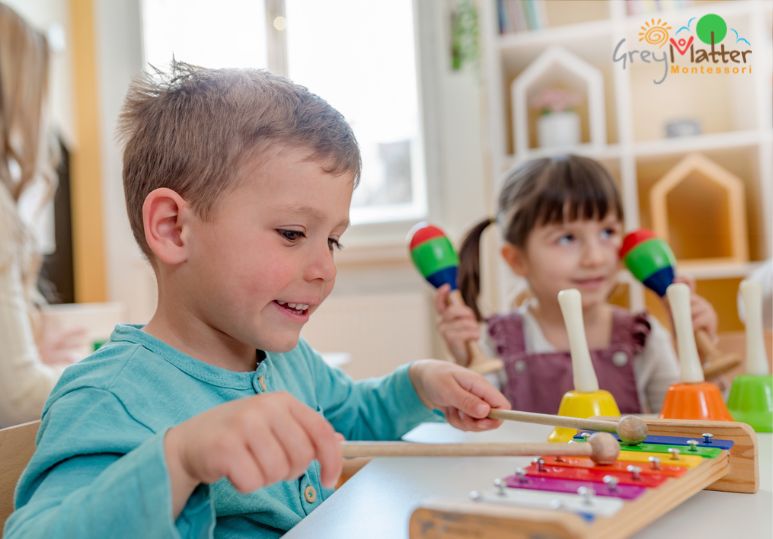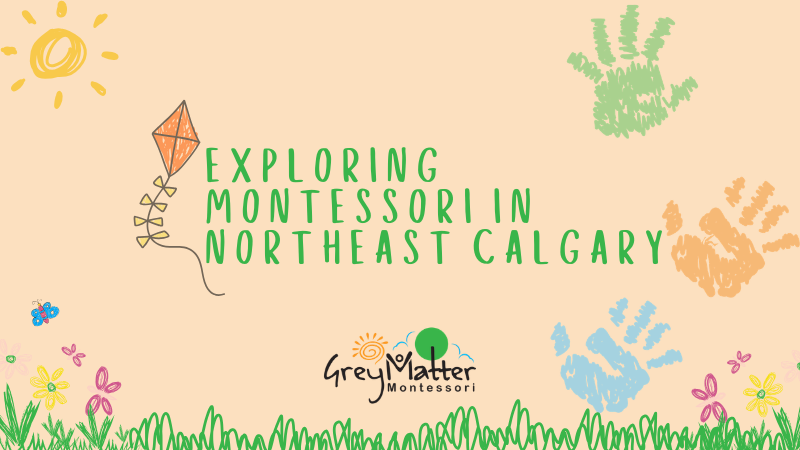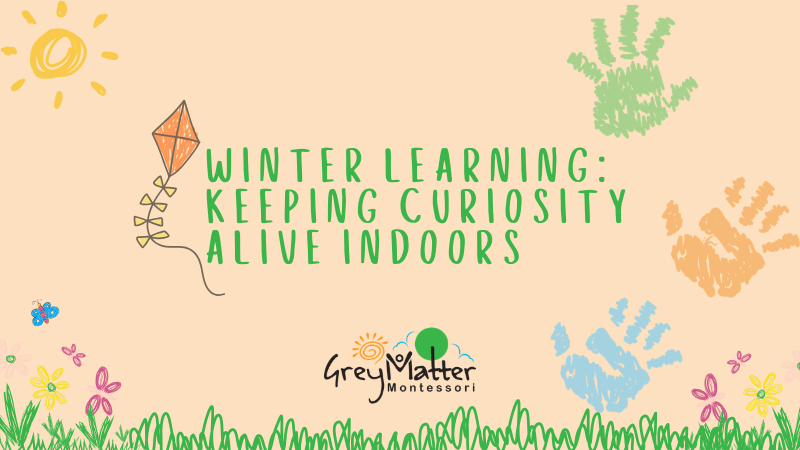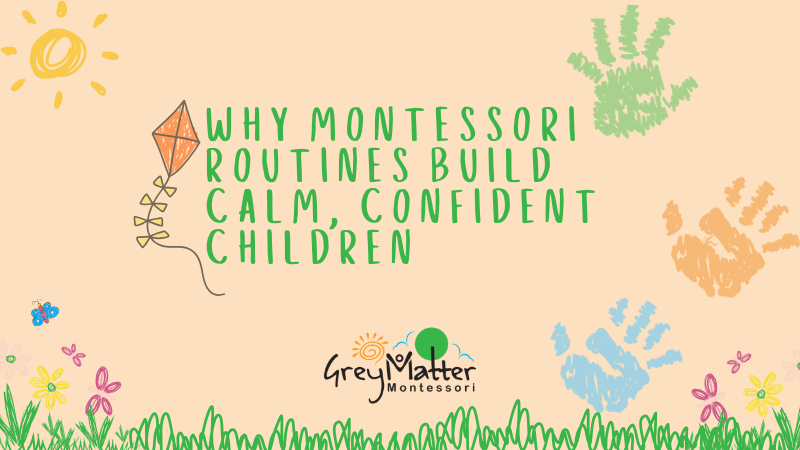In the vibrant, formative years of early childhood, art and music play pivotal roles not just as sources of entertainment but as crucial components of development. At Grey Matter Montessori, we believe in nurturing the whole child, understanding that the integration of art and music into daily activities promotes not only emotional and social growth but cognitive development as well. These creative expressions are fundamental, not supplementary, in laying the groundwork for a lifetime of learning and personal development.
Grey Matter Montessori is dedicated to fostering an environment where the arts are as valued as academics. We champion the integration of art and music into our curriculum, encouraging children to explore, express, and experience the world through these creative outlets. Recognizing their significance, we aim to guide parents on how to extend this enriching experience into the home, making art and music a joyous part of their child’s everyday life.
Cognitive Development Through Creative Expression:
Art and music stimulate parts of the brain associated with memory, spatial reasoning, and language development. When children engage in drawing, painting, or making music, they are not only enjoying themselves but are also enhancing their neural connections. Activities like following rhythms or patterns in music, and the tactile experience of handling different art materials, refine motor skills and coordination, while also fostering problem-solving abilities and critical thinking. Encouraging your child to participate in art and music can thus have a profound impact on their cognitive abilities, setting a strong foundation for future academic endeavours.
Emotional and Social Growth:
Creative activities are a safe and effective way for children to explore their emotions and communicate feelings they might not yet have the words to express. Participating in group art projects or music sessions can also enhance their social skills, teaching them about cooperation, turn-taking, and empathy. At home, parents can facilitate this by providing opportunities for collaborative art projects, or by organizing family music sessions, where everyone contributes to creating a harmonious piece. Such activities not only bring joy but also strengthen familial bonds and help children learn valuable interpersonal skills.
Fostering Creativity and Self-Expression:
In a world that’s increasingly automated and standardized, the ability to think creatively stands out as an invaluable skill. Engaging with art and music from a young age fosters this creativity, allowing children to explore different ways of expressing themselves and viewing the world. By setting aside time for open-ended art activities or free musical exploration at home, parents can encourage their children to express their unique ideas and feelings, bolstering their confidence and sense of identity.
The integration of art and music into early childhood development is more than just an educational strategy; it is a celebration of the human spirit. At Grey Matter Montessori, we understand the transformative power of creative expression in nurturing well-rounded, happy children who are curious about the world and confident in their ability to contribute to it. We encourage parents to create a home environment that values and promotes art and music, recognizing these activities as essential to their child’s development. By doing so, we can collectively support the growth of the next generation of creative thinkers, problem solvers, and empathetic individuals. Together, let’s paint a brighter future for our children, note by note, stroke by stroke.
Easy and Fun Art and Music Activities for Home:
- Artistic Storytelling: Have your child draw a series of pictures that tell a story, then narrate the story back to you based on their drawings.
- Musical Water Glasses: Fill glasses with varying levels of water and use them to create music, teaching your child about pitch and sound waves.
- Nature Collages: Collect leaves, twigs, and flowers on a nature walk and create a collage, encouraging your child to explore textures and colours.
- DIY Instruments: Create simple instruments like shakers from rice and beans or drums from empty containers, fostering an understanding of rhythm and beat.
- Creative Dance: Put on various types of music and encourage your child to express how the music makes them feel through dance, enhancing their emotional intelligence and physical coordination.
By incorporating these simple yet enriching activities into your routine, you're not just spending quality time with your child; you're contributing significantly to their development in ways that will benefit them throughout their lives.
Written on behalf of Grey Matter Montessori.
FAQs
Q. Why is fostering creativity and self-expression important in early childhood?
A. Fostering creativity and self-expression from a young age is crucial for developing the ability to think creatively, an invaluable skill in today’s world. It allows children to explore different perspectives, express their unique ideas and feelings, and develop a strong sense of self-confidence and identity.
Q. How can parents support their child’s development through art and music at home?
A. Parents can support their child’s development by providing opportunities for open-ended art activities and free musical exploration at home. Encouraging artistic storytelling, creating DIY instruments, organizing family music sessions, and participating in creative dance are fun ways to foster creativity and enhance family bonding.
Q. How does engaging in art and music benefit cognitive development in children?
A. Engaging in art and music stimulates parts of the brain involved in memory, spatial reasoning, and language development. These activities enhance neural connections, refine motor skills, foster problem-solving abilities, and encourage critical thinking, laying a strong foundation for future learning.






